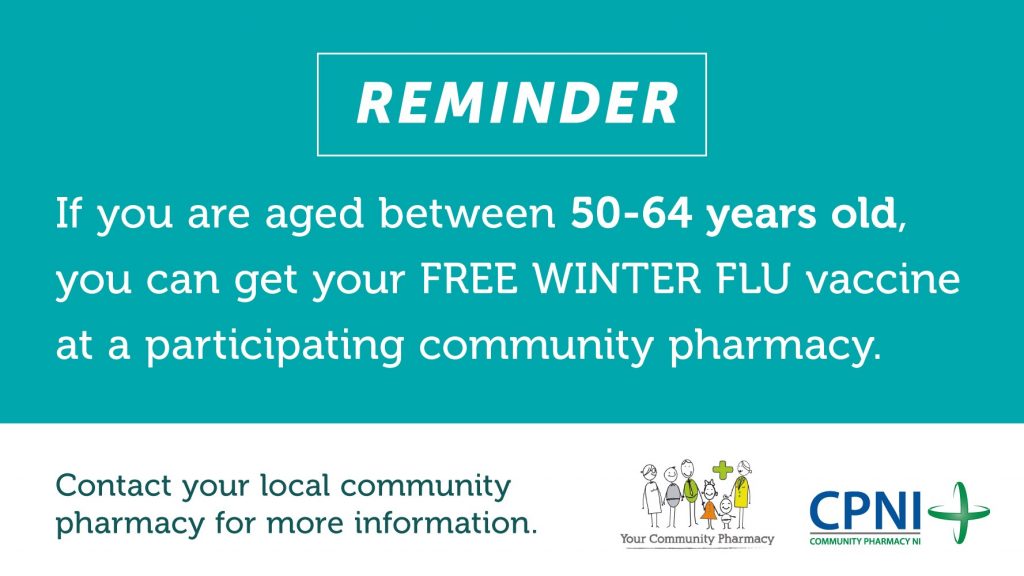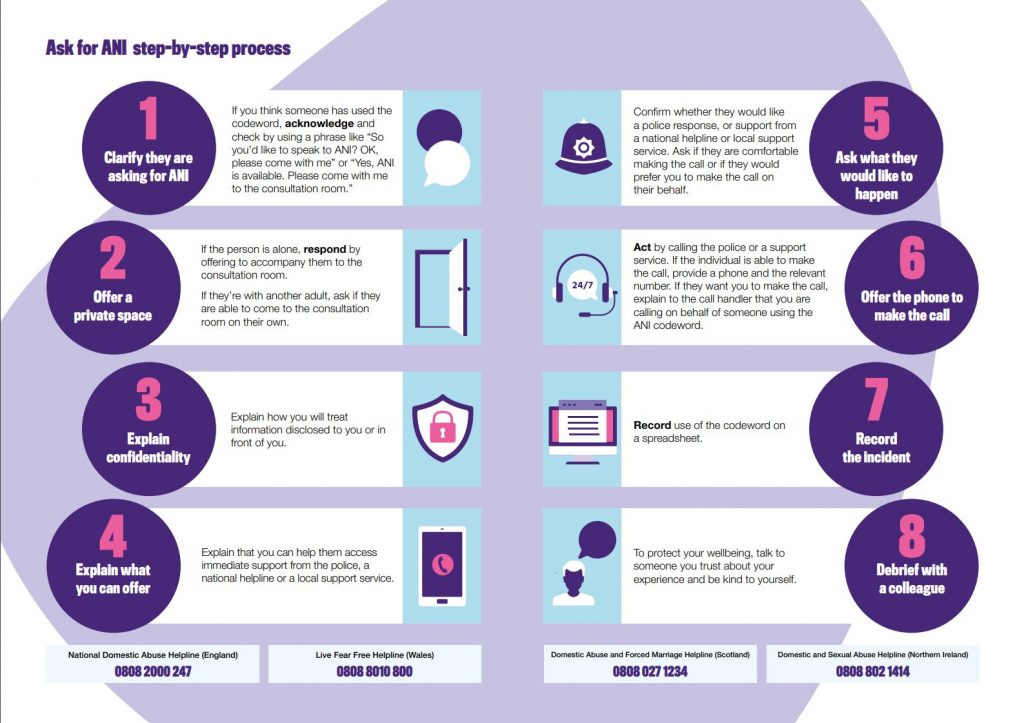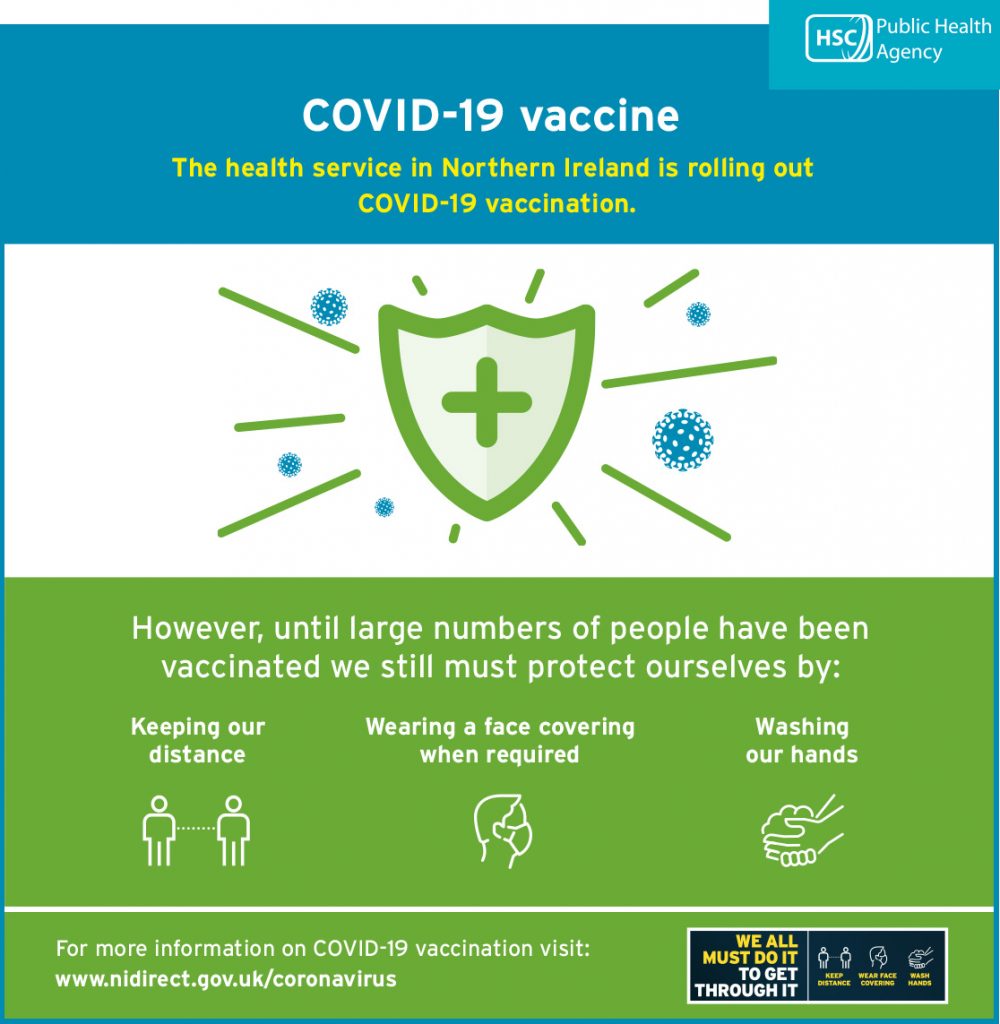he Public Health Agency (PHA) is urging 50-64 year olds who have not yet had the free flu vaccine to get it soon.
The seasonal flu vaccination programme has been extended to include those over 50, which will help protect more people from flu and relieve further pressure on the health service.
Dr David Irwin, Consultant in Health Protection at the PHA, said: “Although flu levels are much lower this year than we have seen in previous years, it is essential that we don’t become complacent. The flu virus hasn’t gone away and could re-emerge at any time, so we must treat it with the respect it deserves and take steps to prevent catching and spreading it.
“Flu vaccination has been extended to include people aged between 50 and 64, who are now able to get it in their community pharmacy or GP surgery. While the flu vaccine won’t protect you from COVID-19, it may stop you from getting both illnesses together and putting strain on health and social care services, not to mention the importance to your own health.
“There should be a gap of at least seven days between getting the flu vaccine and getting the COVID-19 vaccine. So, while you may not yet be eligible to get the COVID-19 vaccine, you should get your free flu shot at the earliest opportunity so you do not have to delay in receiving the COVID-19 vaccine when offered it.”
Those who will be aged 50-64 by 31 March 2021 can avail of the jab from over 350 community pharmacies or through their local GP practice.
Louise McMahon, Director of Integrated Care at the Health and Social Care Board said: “We know that protecting against winter flu reduces pressures on hospital services. To make it easier for people in this age group to get the free flu vaccine this year, we are working with GPs and community pharmacies to support this effort.”
The flu virus spreads through the air when people cough and sneeze without covering their nose and mouth. The flu vaccine does not give you the flu. It is offered as the best protection. It’s free, it’s quick, and it could make a big difference to your health and the health of those close to you.
To find out what community pharmacies are participating in flu vaccine programme see: www.hscbusiness.hscni.net/services/3061.htm






